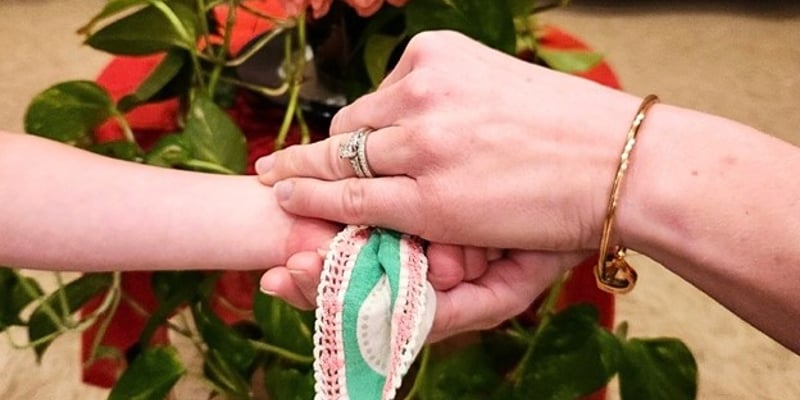More Than a Meme
Written by Debbie Pennington
What’s in a meme? Let’s take a moment to think more deeply about this modern method of communication.

Memes can be a fun, shorthand way of communicating among good friends. Some are quite heartwarming and encouraging.
Of and by themselves, they are not “wrong” or “sinful.” However, as in all things, it’s worth considering whether certain memes are true, helpful or even worth sharing.
(If you’re off the proverbial grid and unfamiliar with what a meme is, according to Merriam-Webster.com, it’s “an amusing or interesting item, such as a captioned picture or video, or genre of items that is spread widely online especially through social media.” For example, an image of Kermit the Frog taking a sip of tea with the caption “But that’s none of my business” was a popular meme several years ago.)
What all memes have in common is that they capture a “sound bite” with an image and scant words. They convey a brief snippet of thought or emotion.
Unfortunately, in this age of social media and the ability to share a fleeting thought in one easy click, memes can be misleading or even completely inaccurate. As a result, it’s wise to be cautious about them.
In that light, let’s think more deeply about this unique form of communicating.
Plumbing the depths
First, a proverb: “The spirit of a man is the lamp of the LORD, searching all the inner depths of his heart” (Proverbs 20:27).
That’s easy just to skim over and think, Ah, what a nice concept. But dig deeper. Reflect longer. Search out more meaning.
“Men’s minds are God’s gifts, and thus able to search one another,” states the Jamieson, Fausset and Brown Bible Commentary about this proverb. (This refers to all people and not men only.)
Think of that for a moment! God gave humans the mental ability to search things out and make discoveries and connections. He created us to be creatures of depth, with the ability to perceive depth in ourselves, His creation and each other.
We’re not shallow, superficial creations. Our God is a God of depth (1 Corinthians 2:10-11). He wants us to seek out the width, length, depth and height of a matter—its dimensions—and reach a point of fullness (Ephesians 3:17-19).
It’s good to ask ourselves, What are the dimensions of this issue, concern or problem?
The more important and complex it is, the more a deep response is required. So a quick skim, an emotional response, a mindless meme or a hasty “share” could cause problems.
Points of caution
So, what are some specific cautionary points Christians might want to consider about memes?
1. It’s hard to find truth on social media. I don’t mean that everyone and everything on social media is false, but by its nature, it presents an incomplete picture of a person.
Consider scripture memes. Yes, you’ll find some lovely scriptures and reflections posted on memes, but might these sometimes become a poor substitute for daily digging into the Bible (Acts 17:11)? And another caution here: Context is crucial. If you choose to use them, check scripture memes for accuracy first, being wary of those that spin a verse so that it supports an opinion. As Christians, we certainly don’t want to misrepresent the precision and depth of God’s very Word.
2. Be prudent (Proverbs 18:15). Practice wisdom in judgment by closely analyzing memes with opinionated commentary. Many are fabricated, taken out of context or designed to manipulate an overly emotional reaction. Fact-checking websites can help debunk these sound bites. Before clicking “share,” just take a few minutes to do a quick Internet search to find a reputable news source that corroborates the meme. If you can’t find anything in a few minutes, consider not sharing it. Being in the fact-checking business, I urge caution in using opinion pieces as reliable news sources.
3. Be watchful of memes that overgeneralize. For instance, a meme that says: “Nobody younger than my generation could possibly understand [fill-in-the-blank].” Allow me to get a little silly to make a point. In the United States, in my generation alone (Gen X), there are roughly 65 million people. Since I haven’t met and interviewed every member of the Millennial, Gen Z and Gen Alpha generations, how could I possibly make such a claim? Wouldn’t that be silly of me?
Now, why does this matter? Even if you’re 100 percent convinced a meme is true, ask yourself—is it helpful? Is it kind? Is it edifying? Will it promote unity? If not, why share it?
4. Be vigilant with AI-generated images. Do you remember the AI image of a baby peacock from several months ago? It was quickly debunked when trusted and respected sources weighed in and told us that peachicks are not bright blue, but brown (among other issues with the image).
AI is now widely prevalent, making it much harder for many to discern what’s fake and what’s real. This could lead to more complex issues as the AI becomes more widespread and powerful. Before sharing an image, take a moment to consider if it’s real or artificial.
Good, better, best
I’ve shared some ways to be cautious with memes on social media. There is much more to consider beyond what can be covered in a blog. So rather than cover it all, can I now offer a revolutionary concept?
Unplug. Spend time away from social media completely.
I realize the irony of making this statement since this blog will be shared on various social media platforms. But I do ask you to consider if spending so much time online is truly worth your precious time?
Get outside. Take a walk. Read a good book. Spend time with people in person. Rediscover depth and wonder by digging deeper into meaningful pursuits. Build something, create something, accomplish something. Learn something new! You were created with so much potential! Is sharing memes really the best use of time?
The truth of the matter is that God wants us to live life to the fullest by digging into, understanding, and modeling the depth of the knowledge of His way of living.
Because life is so much more than a meme.
If you want to continue learning why we should consider our online actions, check out the Something to Think About podcast, Episode 267: Beware the Like Button.










